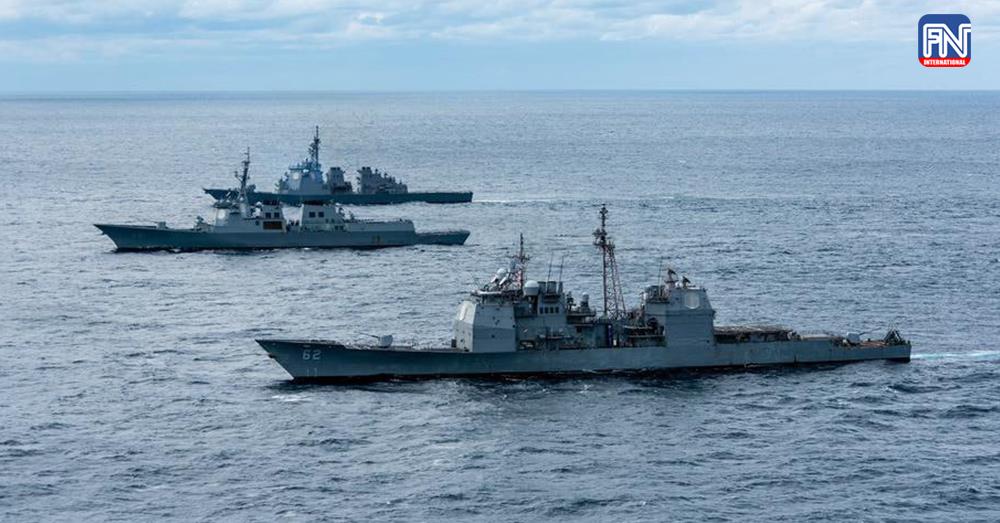SEOUL, July 16 (Reuters) - The U.S., South Korea and Japan held a joint naval missile defence exercise on Sunday to counter North Korea's evolving nuclear and missile threats, the South's navy said, days after the North launched an intercontinental ballistic missile (ICBM).
North Korea fired its latest Hwasong-18 missile, which Pyongyang describes as the core of its nuclear strike force, off the east coast on Wednesday in what it said was a "strong practical warning" to the adversaries.
Sunday's trilateral drill was conducted in international waters between South Korea and Japan, bringing together destroyers equipped with Aegis radar systems from the three countries, the navy said.
Washington and its Asian allies have been working to improve their information-sharing system on North Korea's missiles. South Korea and Japan are independently linked to U.S. radar systems but not to each other's.
The exercise aimed at mastering the allies' response to a North Korean ballistic missile launch with a scenario featuring a virtual target, the military said.
"We will effectively respond to North Korea's nuclear and missile threats with our military's strong response system and the trilateral cooperation," a South Korean Navy officer said.
The North's ICBM launch was denounced by the U.S., South Korea and Japan, though Pyongyang has rejected the condemnation, saying it was an exercise of its right to self-defence.
The latest launch followed heated complaints from North Korea in recent days, accusing American spy planes of flying over its exclusive economic zone waters, condemning a recent visit to South Korea by an U.S. nuclear-powered cruise missile submarine and vowing to take steps in reaction.
